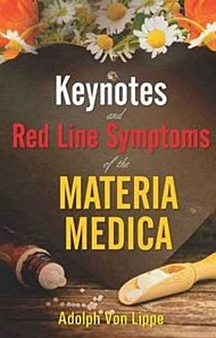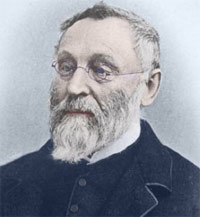
Keynotes & Redline Symptoms Of Materia Medica
( You Save 25% )

Adolph Von Lippe (1812 to 1888) was a one of the first graduates of homeopathy in America. Lippe taught alongside Constantine Hering at the Hahnemann Medical College in Philadelphia and wrote several very influential books which are still standard textbooks today for modern homeopaths. Lippe also translated many important homeopathic texts, thus enriching American homeopathy. Lippe was a founding member of the International Hahnemannian Association and he was a colleague of James Tyler Kent, Henry Newell Guernsey, Carroll Dunham and many other famous homeopaths. His Pioneering contributions will always be remembered.Lippe was a staunch and uncompromising champion of strict Hahnemannian homeopathy. To him the Organon was the last word in the science and art of healing the sick. In his opinion, homeopathy, as taught by Hahnemann, offered the sole means of cure and was universally applicable in both acute and chronic diseases. All other methods were palliative, vicious and harmful.He minced no words in defending this position and vigorously assailed all who advocated what he termed the "Pathologising" of the Materia Medica, those who practiced the alternation of remedies or scoffed at high potencies.Although Lippe was the author of a few books, the number of his contributions to homeopathic literature is unsurpassed by those of any writer in this field, with the possible exception of Hering. Many of his papers are devoted to the elucidation of homeopathic philosophy; others to the methods and rules of correct homeopathic practice. Still others deal with the finer point of the materia medica and reports of clinical cases. He not only possessed a deep knowledge of the materia medica, but a keenness of observation seldom equaled. With uncanny accuracy, he picked out the essential indications of the case, frequently making use of symptoms, which seemed trivial or having no evident connection with the patient's ailment. By far the most important of his contributions to homeopathy are his reports of clinical cases. He was a past master in the art of presenting the essential indications and, what most writers neglect to do, he always tells why he gave the remedy that cured the cases.

( You Save 25% )